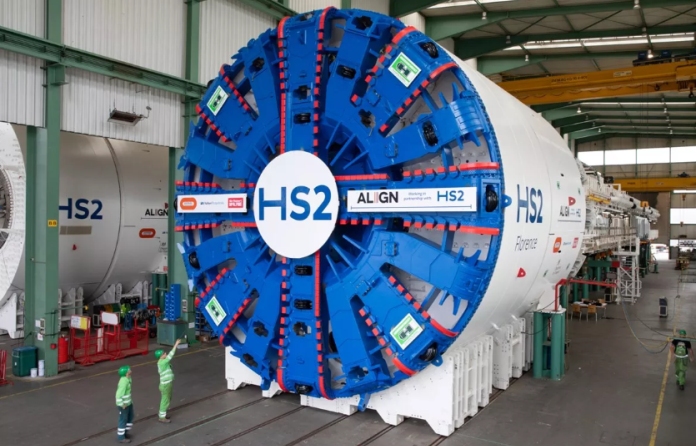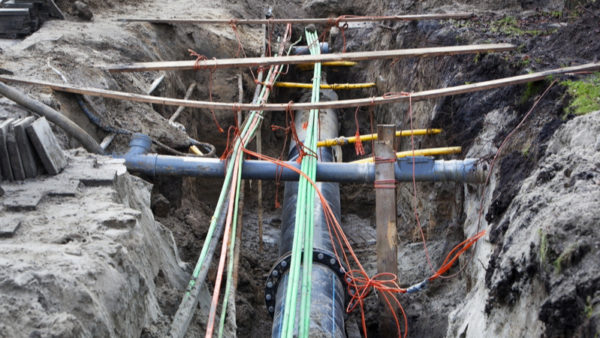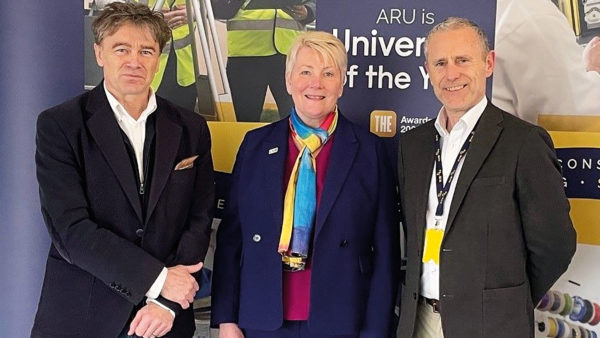
Budget and cost overruns continue to plague government-commissioned projects despite repeated calls for “lessons to be learned”. A new book could help with expert views on complex project governance, writes Richard Bayfield.
On 3 June, London’s The Times reported that Doug Thornton, the former Head of Property for HS2, had said he was forced out of his job in December 2015 after telling HS2 that the true cost of buying land for the section between London and the West Midlands would be at least £4.7bn, about £2bn more than expected.
Just over a week later, The Times reported that Ruth May, the Chief Nurse, was dropped from a daily government press briefing after refusing to defend Dominic Cummings.
This followed Mr Cummings’ visit to County Durham during the covid lockdown. As a result, the phrase “doing a Cummings” is the new shorthand for “going out of bounds”.
Standing up for truth
To some extent, the rejection of advice goes with the territory in very senior roles. But any rejection should be based on alternative and respected opinions.
In the case of covid-19 infection projections in the UK, we have different scientific advice from expert immunologists from Imperial College London and from Oxford University. The government has preferred Imperial College.
But there was no alternative head of property at HS2, nor an alternative Chief Nurse.
I applaud Ruth May and Doug Thornton for taking these very public stances. They both clearly value their personal reputations.
The consequences are huge for taking a public stance: sleepless nights, tainted reputation (until all the facts emerge), and loss of income are the minimum to be expected.
’Twas ever thus
On HS2, it took until earlier this year for some of the key facts to emerge.
The UK’s National Audit Office published a report in March which concluded that the Department for Transport, HS2 Ltd and “government more widely” underestimated the task at hand, leading to optimistic cost and time estimates.
The NAO said there were “lessons to be learned” for other major infrastructure programmes.
Some would say it was ever thus.
In 2003, Lord Peter Fraser of Carmyllie QC was appointed to carry out an independent inquiry into the new building for the Scottish Parliament.
The first project estimate for Holyrood House was for a simple refurbishment of an existing building and was reported at £10m in the Devolution White Paper of September 1997.
The White Paper also contained an estimate for the cost of constructing a new building for the Parliament at approximately £40-50m. This estimate was made prior to the identification of a site or even a design.
When Lord Fraser published his report in September 2004, the new parliament building’s cost had reached nearly £400m.
Politics v. project truth
History shows the ongoing tension between being honest and reporting accurately on politically sensitive projects and issues.
Lord Fraser commented: “This unique one-off building could never ever have been built for £50m and I am amazed that for so long the myth has been perpetuated.”
He also noted that costs rose because the client – first the Secretary of State and then the Parliament itself – “wanted increases and changes or at least approved of them in one manifestation or another”.
He leaves no doubt that there was huge political pressure on those involved in Holyrood not to step out of line.
The lessons cited above are essentially about the clash between politics and project governance.
We never studied this
There is no doubt that lessons still need to be learned. They are crucially important for a functioning society.
But none of this was on the curriculum when I studied engineering!
Recently, however, Charles O’Neil brought together 18 senior members of the international construction community to tap our expertise for a new book, Global Construction Success.
Combining hundreds of years of collective experience on complex projects, it comprehensively reviews the impact human dynamics play in their success or failure.
The importance of senior leadership, better risk management, communication, relationships and conflict resolution are all comprehensively explored from our hands-on perspectives.
This very practical book is essential reading for all stakeholders in construction, including government and commercial clients, investors and lenders, contractor’s senior managers, design engineers, project and supply chain managers – and, yes, university students.
Meanwhile, the challenge for our government as it embarks upon its “build, build, build” programme has been summarised in one sentence by the philosopher, Sir Karl Popper.
“True ignorance is not the absence of knowledge, but the refusal to acquire it.”
The jury is out for the moment.
An independent consultant since 1991, Richard Bayfield, BSc (Hons) MSC CEng CEnv FICE FCIArb, has over 40 years construction and development experience.
CIOB members receive a 40% discount on Global Construction Success, from £69.95 to just £41.95 plus postage. Order direct from the publishers and use discount code: VBT63
Comments
Comments are closed.










Depending on your political opinions it is easy to either criticize or support our current government at this moment in time
But lessons must be learnt and accepted without blame by all sides on how we budget and manage large Government/Public projects otherwise we are doomed to repeat the lies and coverups from before.
Now if you want any government to be honest about the cost of public projects we need to accept that these projects are horrendously expensive and if you scream cost cost cost every time a project is proposed governments will lie to us, and they don’t need much encouragement
We also need to accept that the 24/7 sound bite news feed prevents all politicians from speaking out as no matter what they say is spun by one side or another just to fill someone else’s needs and then the minutes of TV/Radio news, regardless of the facts
Finally we need better accountability on how our money is being spent and who is spending it and on what.
Great to see 18 of the best brains from our industry coming together and giving their personal views about the key drivers of high quality, successful construction projects in “Global Construction Success.”
None of us have all the answers but Global Construction Success goes along way to answering many of the key questions facing our industry. Well done Richard and Sir Karl!
It is a sad truth that in order to win contracts the Contractor has to beat the subcontractors and suppliers prices and costs to unsustainable levels. In order to try to mitigate any losses still further cheaper often inferior materials are sourced and substituted, and where possible cheaper labour is sought.
If the Client were to provide adequate resource (CDM2015) and the Principal Contractor was obliged to provide a fixed and accurate (true) expected project cost and timescale, then the playing field would still be level, we would be more likely to have contracts completed on time and within budget and quality might increase. This would cut down on waste, abortive works, defects and future latent defects and maintenance works. Our sites would be safer, and our Clients and end users would be happier.
The introduction of some element of truth and honesty could be a win win situation for us all.
Good Article Richard, it is a sad fact of working life that people can indeed lose their job for not following the political line. A no-blame culture of trust and collaboration is key, to tell it like it is, which is in line with the UK Governments (IPA) Infrastructure Projects Authority 7 Principals of Success guide.
In my experience, a number of factors can prevent this guide from being applied successfully such as but not limited to:
• People egos and ambitions
• Politics whether that be government or corporate, where people will follow the political line
• Preservation whether that be self or group preservation where nobody will speak up, or even in extreme cases conceal the truth
Despite all the hard work from the majority of people in construction, the behaviors of some in key leadership roles can in some cases have a dramatic detrimental influence on the outcomes of a project and the careers that have been sacrificed of those honest people who just want to do the right thing and speak the truth and tell it the way it is.